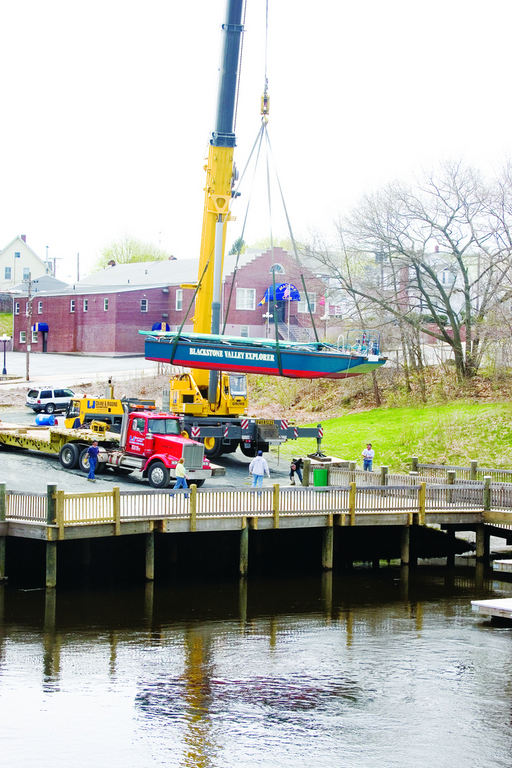
The Blackstone Valley Tourism Council’s strategy in northern Rhode Island has become an international model for sustainable tourism, a new movement in the industry that advocates using sustainable development principles to grow tourism.
To further promote sustainable tourism, the council hosted a symposium for the industry April 26 on practices ranging from energy and water conservation, garbage reduction and marketing to the growing number of travelers interested in “green” destinations.
More than 50 tourism officials and environmentalists attended the half-day event at the Blackstone Valley Visitors Center in downtown Pawtucket.
“Green programs are becoming more of a consideration for people when they select accommodations and make travel decisions,” said Michelle White, director of environmental affairs for Toronto-based Fairmont Hotel & Resorts, one of the guest speakers.
“Right now, green is huge,” she said. “You pick up a newspaper or a magazine or turn on the TV, and there’s something there on the environment. And it helps you to build a good reputation. It allows you to demonstrate good corporate social responsibility, and that is very significant.”
Since 1985, the Blackstone Valley Tourism Council has worked to attract visitors to northern Rhode Island, an area dominated by mill towns built during the Industrial Revolution, by focusing on history and supporting local businesses and residents, said Natalie Carter, director of operations and business manager of the council.
To that end, the group has created boat tours and river education programs on the Blackstone River, operated double-decker bus tours, and funded the opening of a bed-and-breakfast on the Blackstone River in Central Falls.
The council also founded Blackstone Alert, a response network designed to protect Blackstone Valley residents and businesses against floods. More recently, the agency created an international food brochure to advertise small, ethnic restaurants in places such as Central Falls’ Dexter Street that don’t have the resources to market to tourists visiting the region.
The council’s approach is rooted in a belief that supporting Blackstone Valley’s entire economy, enlisting as many stakeholders as possible and building increasing local knowledge of and pride in the region’s history and culture is the best way to grow tourism, Carter said.
“You can’t do it without the people in the valley,” she said. “Tourism shouldn’t impose on an area. People shouldn’t feel that their life is better when tourists leave.”
Now the council’s approach is being embraced by the United Nations World Tourism Organization and other environmental and smart growth groups, mostly as a way to guide tourism promotion in developing nations.
The agency has recently become an international leader in the movement – winning sustainable tourism awards, establishing educational programs and consulting on sustainable tourism practices for tourism officials across the U.S. and the world.
Sustainable tourism – also known as geo-tourism – is promoted as a response to the environmental, social and economic problems that often follow rapid, unplanned expansion of tourism. The approach advocates building a tourism industry that reduces the seasonal influxes of tourists in favor of year-round attractions, defends local communities from the destabilizing forces of change, uses green technologies and practices to protect the local environment, and invests in the natural and cultural assets that already exist in a region.
Last June, the Blackstone Valley Tourism Council became the first tourism agency in the world to receive the UNWTO’s certification of excellence in sustainable tourism practices. At the same time, the council also received the UNWTO Ulysses Award 2006 for Innovation in T-Governance and was recognized for a presentation on sustainable tourism principles at a conference in Spain, Carter said.
In addition, the council last year launched its Sustainable Tourism Planning and Development Laboratory, which brings in tourism officials from other regions and nations to see sustainable tourism principles in action and develop their own plans.
In recent months, Robert Billington, president and CEO of the council, visited the hill country of southeastern Ohio after being asked by the National Trust to help tourism officials in that region assess their cultural assets and develop a tourism strategy, Carter said. And last November, the council launched a series of conferences on sustainable tourism, including the April 26 symposium.
Carter said the council’s leadership in this field is a natural extension of the approach it has taken since well before phrases like “sustainable tourism” or “geo-tourism” were used.
“We’ve been working doing a certain type of tourism which is a little bit different than other types of tourism, and we never really could define it or give a name to it,” Carter said.










